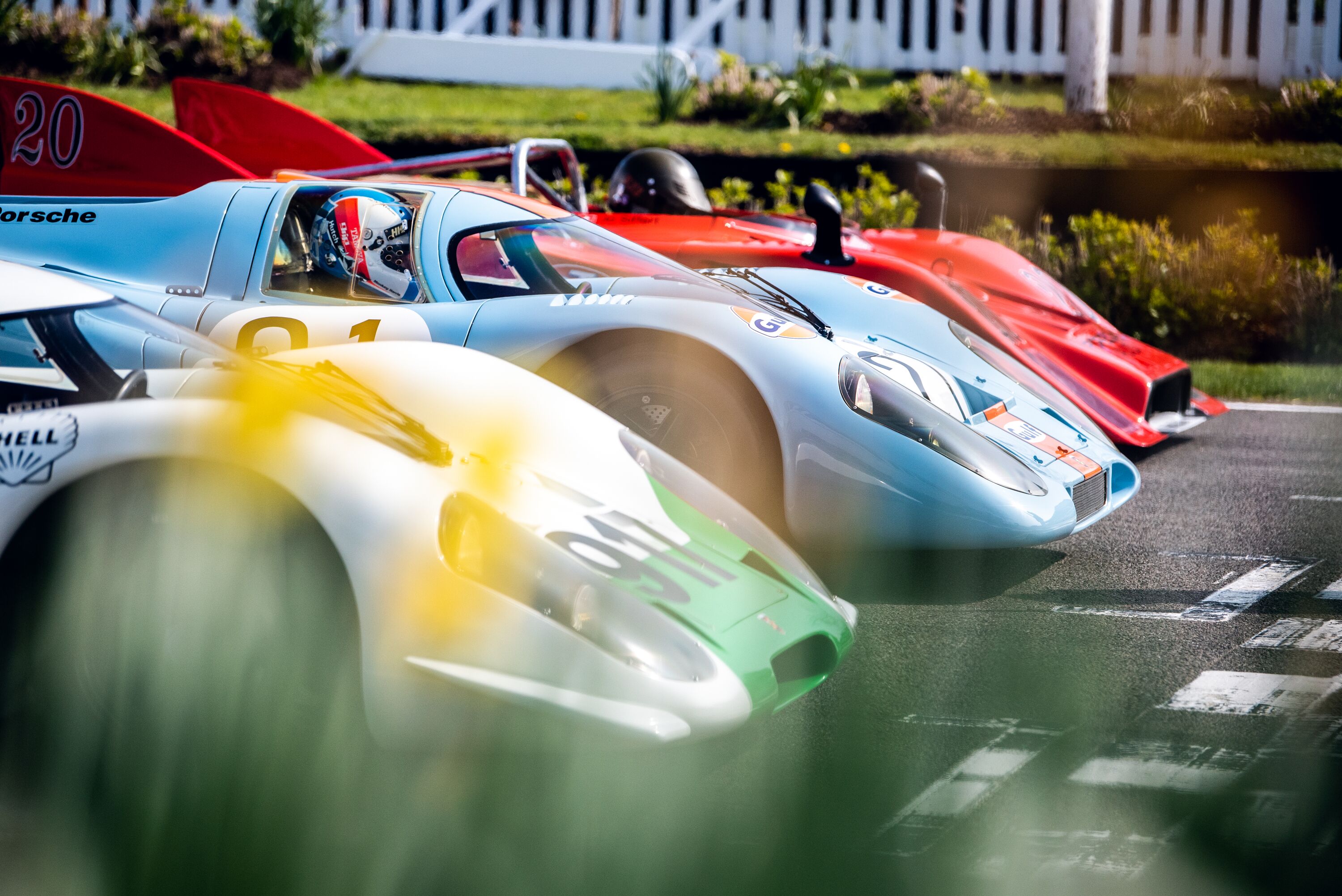First Drive: Mercedes-AMG GT C Edition 50
 Dan Trent
Dan Trent
Do you know your GT S from your GT R, your GT Roadster from your GT C? You’d be forgiven for getting a little muddled now AMG’s sports car family has grown from a two-step range into a line-up of eight cars, two customer racing versions included.

This perhaps reflects a degree of uncertainty about exactly what AMG wants the GT to be, it being the automotive equivalent of the difficult second album. The SLS with which the GT shares much of its structure and components was the performance division’s first ground-up car and a spectacular homage to the classic 300SL Gullwing. In a stroke, AMG proved it was capable of much more than putting big V8s into Mercedes saloon cars and turning them into sensibly dressed muscle cars.
While the SLS was priced and pitched as a true exotic the GT has, meanwhile, landed bang in the middle of the £100,000-£150,000 price bracket dominated by the Porsche 911 but also featuring cars like the Jaguar F-Type SVR and soon to be replaced (but still lovely) Aston Martin V8 Vantage. In response the GT range has expanded and evolved, a range-wide update increasing power and seeing the adoption of a ‘Panamericana’ grille inspired by the 1952 racing version of the 300SL Gullwing. And in this new GT C Edition 50 Coupe, we have pretty much all the bits AMG has developed for the car, combined in one suitably thunderous package.
To recap though you can have your GT with 469bhp, as a GT S with 514bhp or in full-on Nurburgring-slaying GT-R spec with 577bhp, four-wheel steering and active aerodynamics. With 549bhp and the R’s four-wheel steering, the GT C hopes to combine the best of the standard car with some of the R’s more aggressive track-honed attitude. Could it be the pick of the range?
We’ve already driven the GT C in Roadster form; arguably the more hardcore nature suits the coupe better, the limited-run Edition 50 tested here one of 500 celebratory models AMG will be selling with all the trimmings and a choice of two dedicated paint schemes. Priced at £139,855, the Edition 50 is only £3,390 less than the GT R; taking the Roadster version as a precedent expect the standard GT C Coupe to cost more like £130,000.
The Edition 50’s matt Designo Graphite Grey Magno seen here looks fabulously sinister, the lack of aero adornment compared with the GT R actually coming across more effectively. Most obvious is the additional width in the rear bodywork, the rear wings stretched to accommodate wider track, bigger tyres and the rear-wheel steering mechanism. AMG products work best with a sense of understated thuggishness and in the GT C the balance is pitched perfectly – this is a muscle car coupe but one of real sophistication and ability.
You sit low in the GT C, squeezed between door frames and the massive transmission tunnel. In fact, the twin-clutch gearbox is mounted in the rear in a transaxle arrangement and driver and passenger sit either side of the engine, AMG adopting a ‘front-mid’ location for optimum weight balance.
In the modern fashion, the GT C has lots of modes, controlled by two sets of buttons on the central tunnel in a visual representation of the engine’s eight cylinders. The two you need to concentrate on are the AMG Drive Unit that progresses from Comfort, Sport and Sport+ into Race. There’s also an Individual mode where you can mix and match the parameters for engine, adaptive dampers, exhaust noise and ESP intervention to suit your tastes. The other button you’ll want to press if you’ve got even a dribble of petrol in your veins is the exhaust control, this fixing the variable flaps in the pipes to their open and loudest position.
Because, appropriate to AMG’s expertise in such engines, the GT C’s V8 really is centre stage. Here with 549bhp, it proves turbo engines can be just as charismatic as naturally-aspirated ones, the 4.0-litre unit snarling, gurgling, banging and popping away in a fashion that makes most modern motors sound like appliances.
AMG’s engines have always dominated the driving experience and so it is with the GT C, the turbos providing muscular mid-range the SLS’s naturally-aspirated 6.2 never offered. But this car is about handling too and that four-wheel steering system is an interesting addition. The GT is a big car but by turning the rear wheels inwards at low speeds and outwards at higher ones – typically above 70mph or so – it can tune steering response to be more agile or stable depending on the speed and type of corner.
You need to adapt your driving style to suit and to begin with you’ll be weaving this way and that, the car more sensitive to wheel inputs than the regular GT or GT S. Some might even consider it a bit darty at first and the light steering at odds with the otherwise macho image. At lower speeds, there’s a very real sense of the car pivoting around your hips too but the way the system interacts with the rest of the chassis gizmos is impressively unobtrusive and after a while, you adapt and enjoy agility that really shouldn’t be present in a car as big and heavy as the GT.
The damping feels ideally matched too, even with the stiffer settings of the Dynamic Plus package fitted as standard to the Edition 50. Previous experience of the GT suggests a certain brittleness; whether the smooth German roads flattered the car or Mercedes has revised the damping to make it more pliant would take a back to back test here in the UK but, either way, Comfort setting seems an ideal compromise.
The GT R is an impressive demonstration of what this car is capable of in extremis; some of that car’s fearsome attitude blended with a more rounded GT character means this Edition 50 could yet be the pick of the bunch.
Mercedes-AMG
GT C
amg gt


















